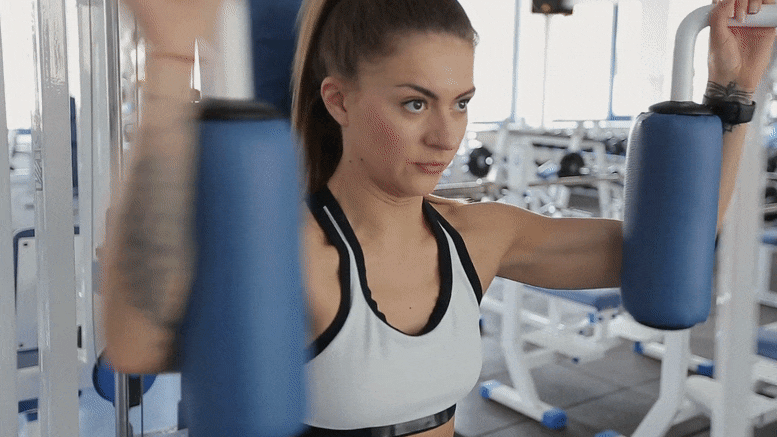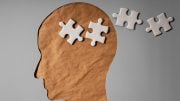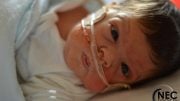
New research indicates resistance training could be more effective than aerobic exercise for improving sleep quality.
- A new study found that resistance exercise may be superior to aerobic exercise as a way to get better sleep.
- A year-long resistance exercise program improved sleep quality, duration and other indicators of a good night’s sleep more so than aerobic exercise, combined aerobic and resistance exercise, and no exercise.
- Researchers say interventions focused on resistance exercises may be a way to improve sleep and, in turn, cardiovascular health.
Resistance exercise may be superior to aerobic exercise as a way to get better sleep, and sleep is important for cardiovascular health, according to preliminary research to be presented at the American Heart Association’s Epidemiology, Prevention, Lifestyle & Cardiometabolic Health Conference 2022. The meeting will be held in-person in Chicago and virtually Tuesday, March 1 – Friday, March 4, 2022, and offers the latest in population-based science related to the promotion of cardiovascular health and the prevention of heart disease and stroke.
“It is increasingly recognized that getting enough sleep, particularly high-quality sleep, is important for health including cardiovascular health. Unfortunately, more than a third of Americans don’t get enough sleep on a regular basis,” said study author Angelique Brellenthin, Ph.D., assistant professor of kinesiology at Iowa State University in Ames, Iowa. “Aerobic activity is often recommended to improve sleep, yet very little is known about the effects of resistance exercise versus aerobic exercise on sleep. The U.S. Department of Health and Human Services’ 2018 Physical Activity Guidelines Advisory Committee Scientific Report identified the need for more research into resistance exercise and sleep outcomes. Our study is one of the largest and longest exercise trials in a general adult population to directly compare the effects of different types of exercise on multiple sleep parameters.”
Previous research has confirmed that not getting enough sleep (the recommended amount for adults is seven to eight hours a day) or getting poor quality sleep increases risks for high blood pressure, elevated cholesterol and atherosclerosis, which happens when fatty deposits build up in arteries. Not getting enough sleep is linked to weight gain, diabetes and inflammation, all of which can worsen cardiovascular disease. Sleeping too much or too little also has been shown to increase the risk of stroke, heart attack and death.
For this study, researchers enrolled 386 adults who met the criteria for overweight or obesity, which was a body mass index from 25-40 kg/m². Participants were inactive and had elevated blood pressure, measuring from 120-139 mm Hg systolic (top number) and 80-89 mm Hg diastolic (bottom number). Participants were randomly assigned to a no-exercise group (for comparison) or one of three exercise groups (aerobic only, resistance only, or combined aerobic and resistance) for 12 months. Everyone in the exercise groups participated in supervised 60-minute sessions, three times a week, with the combination exercise group doing 30 minutes of aerobic and 30 minutes of resistance exercise.
The various workouts included:
- Aerobic exercise participants could choose among treadmills, upright or recumbent bikes or ellipticals for their aerobic modality during each session. Researchers monitored their heart rates to keep them continuously in the prescribed heart rate range for a moderate-to-vigorous intensity exercise.
- The resistance exercise group completed their sets and repetitions on 12 resistance machines to work all the major muscle groups in a session. The machines included leg press, chest press, lat pulldown, leg curl, leg extension, biceps curl, triceps pushdown, shoulder press, abdominal crunch, lower back extension, torso rotation and hip abduction. Participants performed three sets of 8 to 16 repetitions at 50-80% of their one-rep maximum.
- The combination group did 30 minutes of aerobic exercise at a moderate-to-vigorous intensity, and then two sets of 8 to 16 repetitions of resistance exercise on 9 machines instead of 12.
Study participants completed a variety of assessments at the start and at 12 months including the self-reported Pittsburgh Sleep Quality Index (PSQI), which measures sleep quality. Researchers also measured sleep duration; sleep efficiency (how much time one is actually asleep divided by the total amount of time the individual is in bed); sleep latency (how much time it takes to fall asleep after getting into bed); and sleep disturbances (how frequently sleep is disturbed by things like being too hot or too cold, snoring or coughing, having to use the bathroom or having pain). Lower scores on the PSQI indicate better quality sleep, ranging from 0 for the best sleep to 21 as the worst possible sleep. Scores greater than five are considered “poor quality sleep.”
The study found:
- More than one third (35%) of study participants had poor quality sleep at the beginning of the study.
- Among the 42% of participants who were not getting at least 7 hours of sleep at the study’s start, sleep duration increased by an average of 40 minutes in 12 months for the resistance exercise group, compared to an increase of about 23 minutes in the aerobic exercise group, about 17 minutes in the combined exercise group and about 15 minutes in the control group.
- Sleep efficiency increased in the resistance exercise and combined exercise groups, but not in the aerobic exercise or no exercise group.
- Sleep latency decreased slightly, by 3 minutes, in the group assigned to resistance exercise only, with no notable change in latency in the other participant groups.
- Sleep quality and sleep disturbances improved some in all groups including the group that did not exercise.
Based on these findings, interventions focused on resistance exercises may be a new way to promote better sleep and improve cardiovascular health.
“While both aerobic and resistance exercise are important for overall health, our results suggest that resistance exercises may be superior when it comes to getting better ZZZs at night,” Brellenthin said. “Resistance exercise significantly improved sleep duration and sleep efficiency, which are critical indicators of sleep quality that reflects how well a person falls asleep and stays asleep throughout the night. Therefore, if your sleep has gotten noticeably worse over the past two stressful years, consider incorporating two or more resistance exercise training sessions into your regular exercise routine to improve your general muscle and bone health, as well as your sleep.”
A study limitation is the researchers’ use of a self-reported sleep questionnaire to assess sleep rather than objectively monitoring sleep.
The co-author for this study is Duck-chul Lee, Ph.D. Authors’ disclosures are listed in the abstract.
Presentation time is 11 a.m. CT/Noon ET Thursday, March 3, 2022.
The study was funded by the National Heart, Lung, and Blood Institute of the National Institutes of Health.
Meeting: American Heart Association Epidemiology, Prevention, Lifestyle & Cardiometabolic Health Conference, Presentation 38









Be the first to comment on "For Getting Better Sleep, Resistance Exercise May Be Superior to Aerobic Exercise"